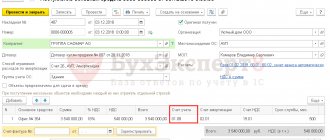Many of our Readers remain unclear when a will is made public after the death of a deceased testator? We will consider the timing of the proclamation of a will after the death of the testator and the possibility of accelerating and extending them today in this article under the heading “Inheritance Law”.
According to Russian legislation, inheritance by will has features and procedural differences from inheritance by law. Most of the nuances are related to:
- The very procedure of announcing the “last will” after the death of the testator.
- The procedure for drawing up a will document and its execution.
The above procedures must be followed in accordance with established standards, any violation of which by the notary, heirs, testator or other citizens who take part in the legal procedure is grounds for declaring the document void and invalid.
Features of receiving an inheritance
The inheritance is declared open the next day after the death of the testator. (Civil Code of the Russian Federation. Article 1114).
That is why the testator can make changes at any time, cancel it or leave a new one without specifying reasons.
Conditions for receiving an inheritance:
- the immediate occurrence of human death.
- Recognition of the testator as dead by court.
- The birth of an heir after the death of the testator.
- A situation where the primary heir refuses to receive the property that is due to him under the will.
When does a closed will come into effect?
A closed will is a special document , the contents of which are known only to the person who made it (what other types of wills are there?). Neither the relatives nor the notary have any idea what items are indicated on the paper. A closed will is sent to the notary's office in a sealed envelope.
Video about what a closed will is and how it differs from a regular will:
To print it, you will need to provide papers confirming the death of the person who wrote the will; only after this can you receive an inheritance. This is usually a death certificate.
The envelope must be opened 15 days after the date on which the office recognized the death of the deceased. (Civil Code of the Russian Federation. Article 1126).
The paper is announced in the presence of all heirs and witnesses.
Note! After the reading is completed, a protocol must be drawn up, which indicates the contents of the document and lists all the people present during the reading. This document comes into force after all the listed procedures are completed.
They cannot receive an inheritance:
- unworthy heirs, that is, persons who committed crimes against 1) the testator, 2) other heirs, 3) acting contrary to the last will of the deceased (the facts must be established by a court decision or sentence) in order to illegally obtain inherited property or increase their share.
How to recognize an heir as unworthy
- persons not specified in the will, even if they are heirs at law (except for the obligatory share). The exception is cases when a will is drawn up for part of the property. All legal heirs, including those receiving property under a will, can claim the rest.
Example: The testator had an apartment, a car and a plot of land. The car was bequeathed to his son. The apartment and land plot will be divided in equal shares among the remaining heirs by law: spouse, daughter, and son. And now the same situation, when the car was transferred by will to a friend of the testator. The remaining inheritance will be divided between the spouse, daughter and son without the participation of a friend (heir under the will), because he is not an heir by law.
Extraordinary circumstances
A document written under special circumstances does not require notarization . (Civil Code of the Russian Federation. Article 1129). A will is considered valid if:
- if a person writes it in a situation that is dangerous to his life.
- If, due to a special situation, it is impossible to make a simple certified will (how to make a will?).
If a person finds himself in one of the above situations, a will is drawn up according to the following rules:
- invite two witnesses to the procedure
- He must write this document in his own hand and put his personal signature.
- It is clear from the contents of the paper that it constitutes a will.
When a person dies after drawing up such a will, legal proceedings occur , which must confirm the existence of special conditions.
Then the will comes into force, but the heirs must have time to declare their rights, since not much time is given for this.
Attention! A will will lose its legal force if the person who wrote it remains alive after the termination of special circumstances. To prevent this from happening, you need to write a will within a month under normal conditions (or a closed one) and have it certified by a notary.
Compilation requirements
Despite the various nuances in design, the requirements for their preparation are the same. Necessarily:
- The presence of free will of the testator. Orders made under threats, pressure or under the influence of material deception may be challenged in court.
- The expression of the will of only one citizen in one document, a collective will, is invalid.
- Presence of the personal signature of the testator (except for a small deviation for a notarized deed, which was mentioned above).
- A note on the date of drawing up the document (necessary to determine which of the orders is current, since each subsequent will cancels the previous one in clauses that contradict each other).
- The absence of provisions that violate the norms of law, morality and morality.
Terms of announcement after the death of the testator
The application must be submitted to the notary within six months after the death of the person. This is done by the heirs of the deceased.
After the notary is notified, he must read out the will within 15 days .
Two witnesses and relatives must be present. (Civil Code of the Russian Federation. Article 1126).
General list of actions to receive an inheritance:
- provision by the heirs of a document confirming the death of a relative.
- The notary appoints a date, time and place for reading the will document.
- Publication in the media or sending by postal address notifications about the subsequent reading of the document to the relatives and legal heirs of the deceased person.
- Reading of the will by a notary in the presence of the necessary persons.
- Explanations and explanations of the will of the deceased by a notary when such a need arises.
- Drawing up a protocol confirming the announcement. Placing the signatures of the notary and witnesses on it.
- Receipt by the heirs of certified copies of this inheritance protocol.
The actions when reading a closed will are almost identical. However, the will itself is kept in a special order by a notary. The will is in two envelopes , which are opened in turn during the announcement procedure. In addition, before the procedure, the identities of all those present are checked and their family ties are confirmed, and then a copy of the death certificate is made.
Actions of a notary to verify applications
When accepting an application and before issuing a certificate of inheritance, the notary must:
- identify the heir (passport details, name indicated in the will and presented by the applicant);
- check the legality of the will in form and content;
- if the will indicates blood ties connecting the deceased, examine the documents confirming the relationship;
- allocate the marital share from the inheritance mass;
- establish everyone who is entitled to a mandatory share in the mass of the inheritance. When such is established, the inheritance should be fairly distributed;
- clarify that if the heirs under the will oppose the allocation of the obligatory share, then this is a legal dispute;
- take measures to preserve property, if required.
Validity
It is best for people who expect to receive an inheritance to let the notary know about this as quickly as possible in order to avoid the need to go to court and not waste their own time. But in some situations, the heir, due to certain circumstances, does not have the opportunity to declare his rights or is not at all aware of the death of the testator. What to do then?
- After the will comes into force, the heirs must decide whether they want to become the owner of the inheritance or want to refuse it (Civil Code of the Russian Federation. Article 1157). According to the law, six months are allotted for this action and they begin immediately after the death of the testator (Civil Code of the Russian Federation. Article 1154).
- If there is no active action on the part of the testator, the law provides for a different period of time.
It is valid for 3 whole years and is needed so that the heir can restore his rights with the help of the court if he had good reasons for missing the primary time of inheritance. Moreover, these 3 years do not begin from the date of death of the testator, but begin when the heir lost a circumstance for which he did not apply earlier.
Reference! The will does not provide a framework for the validity period and works indefinitely. If it was lost by relatives or not found at all, you should contact the notary, where its certified copy is usually kept.
Video about the timing of inheritance:
Features of inheritance by will
Succession by will is regulated by Ch. 62 of the Civil Code of the Russian Federation and takes precedence over the legal order of inheritance. This provision is established by Art. 1111 Civil Code and Art. 1119 and 1120, which reinforce the significance of the act of expression of will, giving the testator the right:
- Independently manage the future owners of your personal property, both present and future.
- Determine the size, ratio and content of hereditary shares.
- Deprive successors of the right of inheritance by law, all or selectively.
- At its own discretion, grant persons the right to receive a testamentary refusal.
- Oblige heirs to fulfill testamentary assignments.
- Substitute successors in case of refusal of those appointed.
- Leave several wills https://ros-nasledstvo.ru/kak-pravilno-oformit-i-napisat-zaveshhanie/ that do not contradict each other.
In this case, the right of succession may be vested in:
- any persons specified by the testator, regardless of the presence of family relations;
- children not born but conceived during the life of the testator;
- legal entities;
- international organizations;
- Russian Federation and its constituent entities;
- municipalities;
- foreign states.
But the possibility of disposing of personal property is still not unlimited. Art. 1149 of the Civil Code provides for the right to an obligatory share, which is exercised despite the instructions of the testator. Its owners can claim half of the inheritance that they would have received legally. The following may count on the obligatory share:
- Children who are minors or otherwise disabled and officially recognized by the testator.
- Disabled spouse and parents.
- Dependents who were supported by the testator for at least a year and, if they were not included in the circle of heirs by law, also lived with him.
Example. When drawing up a will, the testator bypassed the adult daughter of his official wife. The stepdaughter was declared incapable of work due to a disability and was supported by her stepfather for a certain period of her life (more than a year). These circumstances gave her grounds to claim part of the inheritance - 1/4 of the apartment, that is, half of what she could have received by law on the basis of her belonging to the same line as the natural son of the now deceased (her mother died several years earlier).
Peculiarities of registration of a testamentary act
One of the main aspects that must be taken into account is the fact that only a citizen who has not been declared unworthy can be the heir. By the latter it is necessary to understand that people who have broken the law and harmed the testator do not have the right to enter into an inheritance, even if the expression of will has not lost force. Requirements are also made for the testator. They can only be a legally competent citizen who:
- Has reached the age of majority or has been officially declared emancipated.
- Able to objectively accept reality and thoughtful decisions.
- Was not subjected to psychological pressure, threats, or blackmail.
- I personally wrote the text (with my own hand) and voluntarily signed an autograph.
A testamentary act is a document, the terms of which are kept secret until the opening, which occurs after the death of the will-maker.
Why was an inheritance agreement invented and how does it differ from a will?
It is no secret that after the opening of an inheritance, conflicts often occur in families. For example, the owner bequeathed an apartment to one son, and a car to another. At the same time, he also wanted his son to live in the apartment with his mother, and at the first request, the car would be given free of charge for transportation to his beloved nephew and his family, i.e. everything remained “as usual.”
The heirs may not have known about such conditions, or they knew, but did not want to fulfill them, since the requests were not recorded and this cannot be done in wills. In order for the will of the testator to be carried out, inheritance agreements were created.
An important difference between an inheritance agreement and a will is that the latter is a unilateral act. Unlike a will, an inheritance agreement is concluded by the testator and the heir. This allows the rights and obligations of the parties to be agreed upon in advance.
Order of succession
In approximately 68% of cases, property owners independently manage their apartments and do not allow legal division. After opening a will, attention is paid primarily to the will of the owner, and not to the wishes of the persons inheriting the property right.
The order in which inheritance should be entered into is strictly prescribed in the Civil Code of Russia. There are several inheritance queues.
The first of them includes people related by blood (children and parents) and spouses.
Expert opinion
Klimov Yaroslav
More than 12 years in real estate, higher legal education (Russian Academy of Justice)
Ask a Question
If there are no persons in the first group, the right to own the property passes to the next group, which includes sub-heirs: grandchildren, grandparents, brothers and sisters.
If a will is made according to the law, the property is distributed in such a way that the largest share is received by the first in line, and the last by the sub-heirs.
Persons living in cohabitation with the deceased also have the right to receive a share in the objects of the will.
What happens in the event of death?
If the testator dies, all rights and obligations assigned to him under the contract pass to the heir.
In the event of the death of an heir, things are more complicated. Only the surviving person can demand fulfillment of the terms of the contract providing for what will happen in the event of the death of the testator.
Think ahead! We recommend including in the inheritance agreement a condition that in the event of the death of the heir, his own heirs will have some rights - at least to a return of the money spent.
How to execute a will
Acceptance of an inheritance does not always imply only a “pure” transfer of ownership of property. Sometimes additional steps are required to successfully transfer rights:
- protection of inheritance;
- search and seizure of property from third parties;
- fulfillment of debt obligations of the testator;
- transfer of property to the heir and registration of such transfer.
Also, the will may provide for actions performed in favor of third parties (testamentary assignment or testamentary refusal). The testator, showing concern for the heirs, protects them from such responsibilities. And such actions can be performed by the executor of the will. The will must be executed by the one named in the will - the executor, with his consent.
Ways to express the consent of the executor to carry out the will of the deceased:
- his signature in the will;
- a separate statement, which is an appendix to the will;
- a separate application sent to a notary within 1 month from the date of death of the person who left the will;
- actual actions implementing the will of the deceased.
Obligations of the heir under the contract
The testator and heirs agree in advance what property will go to whom and what conditions must be met for this. The agreement can distribute not only assets (real estate, money and shares in a business), but also liabilities (for example, the heir’s obligation to repay the loan).
Responsibilities can be of two types:
Property responsibilities.
For example, a daughter will receive an apartment on the condition that she will support her father until his death.
Non-property responsibilities.
For example, a father's house will pass to his son only if he takes care of his parent's pets.
Note! An inheritance agreement may establish obligations that the heir must fulfill from the moment of its conclusion. For example, it may contain the obligation of the heir to transfer 10 thousand per month to the testator, and after the death of the testator he receives his apartment.
The essence of a will and the basic principles of its preparation
The main task solved by a will after it comes into force is to preserve the main freedom of the property owner. We are talking about the right to dispose of property. This refers to intravital orders, so that even when the will-maker is recognized as deceased, his wishes are taken into account during inheritance. Therefore, the expression of will is endowed with such force that it is the dominant document in the distribution of inherited shares.
Property rights are assigned by the testator. It is he who determines who will receive what property and what must be done for this. Special conditions often involve a duty of care for animals and dependent people. It is also possible that the heir must give birth to a child, get married, or remain single. This manifests freedom of expression, protected at the legislative level.
At the time of contacting the notary, the owner decides what will happen if the heir dies before the testamentary disposition comes into force. Sub-appointed successors are considered to be persons indicated as successors in the event of the death of the main applicant or his refusal to accept the property. The notary will approve and certify any requirement that does not contradict the laws. The latter means that the testator is capable and voluntarily transfers the inherited objects.
Important aspects to know before compiling
It is necessary to familiarize yourself with the rules for the entry into force of a will so as not to challenge it in court:
- To prevent a problem, an application must be drawn up only by a legally capable person. Also, the document must have signatures with details according to the template offered by the lawyer. A competent person is an emancipated person (16 years of age), who has reached the age of majority and has no restrictions on the disposal of his or her capabilities.
- The declaration of will is written independently. It is not recommended to involve a trusted person, but this is not prohibited by law. Through a power of attorney, a document can be revoked through the court.
- The will of the owner is stated in the testamentary document. The drafting of a document describing the collective wishes for the disposal of the apartment is excluded.
- The recording is carried out by the owner of the property or a person authorized to do so, based on the words of the person submitting it.
Important! The legal capacity of the testator, as well as the persons signing the document, is judged personally by the notary. The lawyer will require medical certificates confirming sanity.
Price
To accept a will, you need to pay a state fee and specialist services.
The amount of the amount in 2021 in Russia will depend on the degree of relationship and the value of the property:
- 0.3% of the cost of the apartment for relatives, but not more than 100 thousand rubles;
- 0.6% of the price for property for third parties, but not more than 1 million rubles.
The cost of the object will be determined after an assessment by a specialist or BTI. Typically, notary services cost up to 3 thousand rubles, depending on the region.
Who owes what?
Each heir under a will can only receive what is specified in the substitution. The notary takes care of this by issuing appropriate certificates of the right to inheritance to the heirs.
The dispositions in a will can be different:
- heirs are identified and property is distributed between them. Everything is clear here.
- indicates the heirs and their shares in the property. In this case, the heirs can inherit each thing in appropriate shares or distribute the property so that the total amount of shares is respected.
Example: A father bequeathed his property to his son and daughter in equal shares. The inheritance included: a summer cottage worth 750,000 rubles, a car – 500,000 rubles, a motorcycle – 250,000 rubles, an apartment – 1,500,000 rubles. The daughter and son distributed the property as follows: the son received a summer cottage, a motorcycle and a car (total cost 1,500,000 rubles), and the daughter received an apartment. Thus, all property was divided in half.
- the testator only listed the heirs. In this situation, the distribution of the inheritance in equal shares of all property is implied.
- a will disinherits one, several or all legal heirs.
Example: A will is drawn up that states only that the testator’s spouse is disinherited. Legal heirs, with the exception of the spouse, are called upon to inherit. The latter cannot claim anything.
In addition, there are still persons who will receive an inheritance in any case - the so-called obligatory share. This:
- minor children;
- disabled parents, children, spouse, dependents of the testator.
The size of the obligatory share is always no less than half of the share that would have gone to such an heir upon receipt of property by law (that is, if there had been no will).
Example: The testator had a wife and a minor daughter. According to the will, he inherited all the property - the apartment - to his wife. When distributing the inheritance, the daughter is entitled to ¼ share in the apartment.
The obligatory share can be provided from:
- remainders of intestate property;
- if there are not enough leftovers, then from the property that is bequeathed.
Place of opening of inheritance
No less significant a fact of inheritance than time is the place of opening of the inheritance . Its determination is necessary when resolving a host of issues - when submitting an application for acceptance and refusal of an inheritance, obtaining a certificate of inheritance, when taking measures to protect the inheritance, increasing inheritance shares, filing claims by creditors, etc. It is determined according to the rules of Art. 1115 of the Civil Code, according to which it is considered the last place of residence of the citizen-testator.
For your information
Based on Art. 20 of the Civil Code, the last place of residence of the testator should be considered the address at which he permanently or primarily resided at the time of his death or when he was declared dead.
Regarding minor citizens and citizens under guardianship, this place is recognized as the place of residence of their legal representatives. Thus, the place of opening of inheritance cannot be recognized as a place of temporary residence or stay - places of military deployment, places of detention, student dormitories, etc. In order to determine the place of opening of the inheritance, their permanent place of residence prior to military service, arrest and study, respectively, is recognized.
In addition, potential heirs need to remember that:
- According to clause 30 of the Methodological Recommendations for performing certain types of notarial actions, approved by Order of the Ministry of Justice of the Russian Federation No. 91 of March 15, 2000, the place of opening of the inheritance must be confirmed by a certificate issued by the housing maintenance enterprise or internal affairs bodies. Such a certificate is issued at the place of permanent registration of the citizen.
- If such place of residence is unknown or is located outside of Russia, in accordance with clause 2 of Art. 1115 of the Civil Code, the place of opening of inheritance should be considered the location of the inherited property . Such a location must also be documented - an extract from the Unified State Register, a title document for the property, etc.
- In cases where the property included in the inheritance mass is located in different places, the inheritance is opened at the location of the real estate included in its composition or its most valuable part. And in the absence of real estate, the place of discovery is considered to be the location of the movable property or its most valuable part. The value of a part of the property can only be determined by conducting an expert assessment and determining its objective market value.
- If there are no documents confirming the location of the inherited property, the inheritance can be opened on the basis of a court decision establishing the place of opening of the inheritance, as a fact of great legal significance (clause 9, paragraph 2, article 264 of the Code of Civil Procedure).
Challenging a closed will
A secret order is challenged in the following situations:
- Failure to comply with the law during the procedure.
- Drawing up an administrative act by another person.
- Incapacity of the testator.
- Errors and inaccuracies in the text.
Heirs whose rights are considered to have priority - disabled parents, the testator's spouse, dependents, minor children - have the right to challenge a closed will.
Procedure
Challenging involves filing a claim in court. The procedure for canceling a document is available for 3 years if there is evidence of the incapacity of the testator or violations during registration.
The period for annulment established in the event that it is revealed that a closed will was drawn up under the influence of threats and blackmail is 1 year. The plaintiff must prove his own case by presenting conclusive evidence.
What does a will give for an apartment?
The status of a testator does not limit the right to dispose of property. Many people are afraid to draw up a document because they do not know whether the testator can sell the bequeathed property. In fact, there should be no doubt whether a will is an encumbrance. A will is not a gift, when the right to re-register arises immediately after signing by the owner.
The right to property can be exercised only after the death of a person, after a six-month waiting period.
A will for an apartment only reflects the last will on the further disposal of property, but does not give the right to act immediately after its preparation.
The testamentary document will come into effect only after its publication by the notary and will give authority for re-registration in the future.
Will with the condition not to sell the apartment
If the owner fears that the heir will sell the apartment immediately after entering into inheritance, it is permissible to introduce restrictive conditions in the will. When planning to introduce a clause with a restriction, the testator must determine in advance the period of validity of the prohibition - for a year, two, a decade.
In addition to the prohibition of sale, there is often an obligation to retain specific persons the right to reside in the apartment for a clear period of time.
Encumbrances are established both against relatives and under a will to a stranger.
Validity period of the administrative document
There is no statutory time limit. A will gains legal force immediately after it is signed and certified. Periods depend on other reasons. If over time the testator draws up another declaration of will concerning the distribution of the same inherited property, the first will is automatically revoked. When there is no intersection, both papers are valid, and the distribution of property is carried out simultaneously according to two expressions of will.
The duration of the will is important not for the testator, but for the heir. Even if the applicant is indicated in the text, the rights are canceled if the corresponding application is not submitted within six months. When there are no competitors in the inheritance procedure, you can take ownership within 3 months. But even the pass is restored if you file a claim. It is also valid if there is a valid reason. This refers to circumstances that objectively did not allow this to be done in a timely manner.
In addition to the timing of acceptance of the inheritance, the limitation period is taken into account. The Civil Code states that a will can be contested within three years. Otherwise, the document remains valid and it will no longer be possible to correct the situation. The invalidation procedure also involves litigation. The complaint is filed with the district court at the location of the inherited property.







